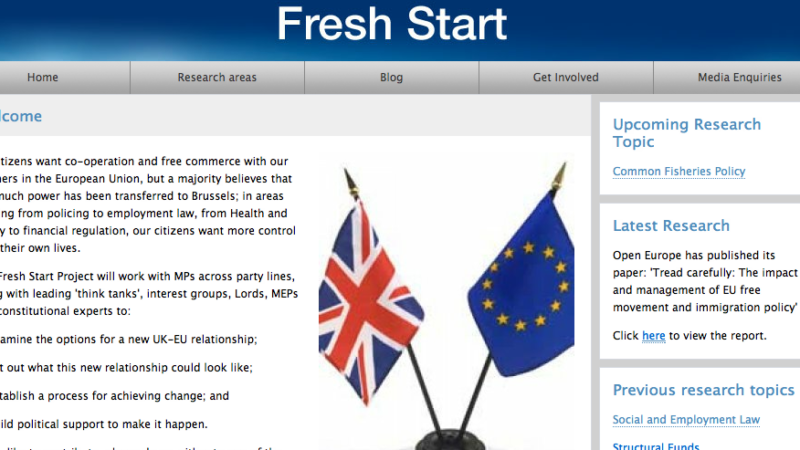Nicholas Watt falls for EU Fresh Start ruse from a report that’s not publicly available

 On the Guardian website today there’s a piece entitled “David Cameron to warn François Hollande against challenging EU rebate” by Nicholas Watt. At the start it’s a bit of a ramble, essentially that Cameron will need to push François Hollande on the UK’s budget rebate to try to stick to the broad lines of an agreement supposedly struck with Sarkozy – that the UK rebate will remain intact if the UK does not challenge CAP spending to the anger the French. So far, so predictable.
On the Guardian website today there’s a piece entitled “David Cameron to warn François Hollande against challenging EU rebate” by Nicholas Watt. At the start it’s a bit of a ramble, essentially that Cameron will need to push François Hollande on the UK’s budget rebate to try to stick to the broad lines of an agreement supposedly struck with Sarkozy – that the UK rebate will remain intact if the UK does not challenge CAP spending to the anger the French. So far, so predictable.
Then – for reasons that are not altogether clear – Watt goes on to mention that Cameron is under pressure over the 2014-2021 financial perspectives. We’ll ignore that it will actually be the 2014-2020 perspective that a quick Google search would have revealed. The focus is particularly on a report by EU-sceptic Tory Andrea Leadsom MP that claims that £16.8bn could be reduced from EU structural funds, i.e. nothing to do with agriculture and the rebate which was initially the topic of the piece.
Further, the paper to which Watt refers does not seem to have been published yet – there is no word about it on the EU page of Leadsom’s website, nor on the Structural Funds page of the EU Fresh Start website. Indeed the link to a structural funds report there actually incorrectly links to a structural funds report by Open Europe, so – just to be sure – I looked at Open Europe’s Research page too, and at the time of writing there’s nothing there either.
So then, let’s have a look at the paragraph about Leadsom and structural funds written by Watt:
In a chapter of a new green paper, to be published by the Fresh Start group, Leadsom says that structural funds should only be distributed by the EU to countries whose gross national income is less than 90% of the EU average. Britain would have been handed back £13bn of the £33bn it contributed during the current budget period from 2007-2013 had the plans been in place then. The £9bn spent in Britain on structural funds would have been administered in Britain while a further £4bn, spent on relatively rich EU regions, would have been repatriated to Britain. The remaining £20bn would have remained with the EU to distribute to poorer regions.
The essential point is that structural funds would be determined on a country by country basis, instead of a region by region basis. This would mean that the UK would not receive any structural funds for its poor regions whatsoever. The £9bn that Leadsom refers to would then be administered in Britain, but I very much doubt poor regions in South Wales or the North West would have seen anything like the full amount of it. Further, the £4bn “spent on relatively rich EU regions” is not an accurate statement – it should be rephrased as “spent on poor regions of relatively rich Member States”. There is then the additional presentational problem here – by taking the structural funds alone, the figures above (as far as I can tell – but hell, the report is not available, so I can’t check) do not count in the UK’s budget rebate. The final line implies a net contribution of the UK to structural funds of £20bn but taken alone that’s a rather meaningless figure without seeing the UK’s net contribution to agriculture, foreign aid etc.
So well done Nicholas Watt. You win today’s prize for lazy EU journalism.